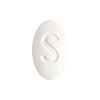
SORBITRATE INDICATIONS
Sorbitrate is used to treat or prevent attacks of chest pain (angina).
SORBITRATE INSTRUCTIONS
Take this medication exactly as it was prescribed for you. Use the medicine at the first sign of chest pain. Place the sublingual tablet under your tongue and allow it to dissolve slowly. Do not chew or swallow it. The chewable tablet should be chewed and then held in the mouth for about 2 minutes before swallowing.
Do not crush, chew, break, or open an extended-release tablet or capsule. Swallow the pill whole. It is specially made to release medicine slowly in the body.
SORBITRATE STORAGE
Take this medication exactly as it was prescribed to you by your doctor.
SORBITRATE STORAGE
Store isosorbide dinitrate at room temperature, away from moisture, heat, and light. Keep the medicine in its original container.
Do not use isosorbide dinitrate if you are taking sildenafil (Viagra). Serious, life-threatening side effects can occur if you take isosorbide dinitrate while you are using sildenafil. Do not use this medication if you are allergic to isosorbide dinitrate, isosorbide mononitrate (Imdur), or nitroglycerin.
Before taking this isosorbide dinitrate, tell your doctor if you are allergic to any drugs, or if you have:
early signs of a heart attack (chest pain or heavy feeling, pain spreading to the arm or shoulder, nausea, sweating, general ill feeling);
congestive heart failure;
severe anemia (a lack of red blood cells); or
low blood pressure; or kidney disease.
This medication may be harmful to an unborn baby. Tell your doctor if you are pregnant or plan to become pregnant during treatment. It is not known whether isosorbide dinitrate passes into breast milk or if it could harm a nursing baby. Do not use this medication without telling your doctor if you are breast-feeding a baby.
Isosorbide dinitrate can cause side effects that may impair your thinking or reactions. Be careful if you drive or do anything that requires you to be awake and alert. Avoid drinking alcohol.
Get emergency medical help if you have any of these signs of an allergic reaction: hives; difficulty breathing; swelling of your face, lips, tongue, or throat. Call your doctor at once if you have any of these serious side effects:
fast, slow, pounding, or uneven heart rate;
blurred vision or dry mouth; or
nausea, vomiting, sweating, pale skin, feeling like you might pass out.
Less serious side effects may be more likely to occur, such as:
warmth, redness, or tingly feeling under your skin; or
feeling weak or dizzy.